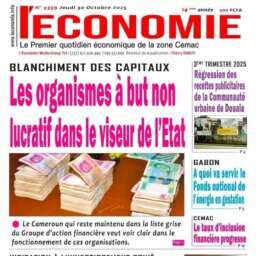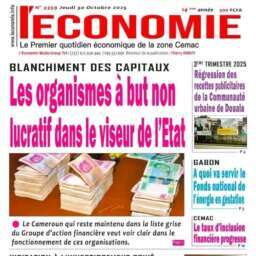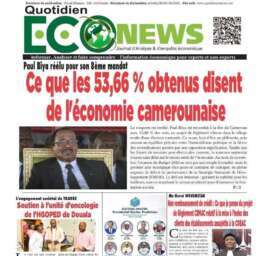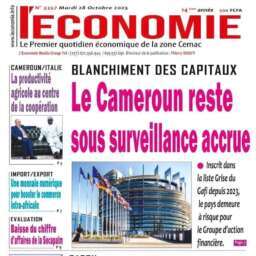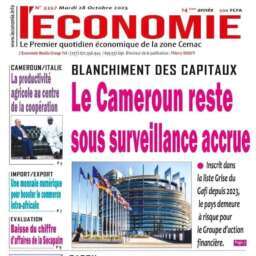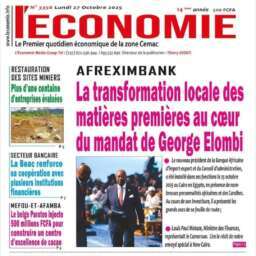(Business in Cameroon) – The Cameroonian government projects its tax-to-GDP ratio will increase from 13.6% in 2023 to 14.4% over the 2025-2027 period, a goal encouraged by the African Development Bank (AfDB). The AfDB also urges Cameroon to achieve a 15% tax pressure level by 2028, which would still be two points shy of the 17% African benchmark, as stated in the Ministry of Finance’s 2025-2027 Medium-Term Economic and Budgetary Programming Document.
In its 2025 country report analyzing “policy options to accelerate economic development” in Cameroon, the AfDB suggested the government “accelerate the reforms needed to reach the 15% tax pressure target by 2028.” The pan-African financial institution believes this would allow for greater mobilization of financial resources for development projects.
To achieve this goal, the AfDB suggests several major reforms for Cameroon. The first is “reforming the 2013 law to streamline investment incentives.” This reform has been in effect since July 18, 2025, when the Cameroonian head of state signed an ordinance amending the April 2013 law on private investment incentives in Cameroon for the second time, after a previous amendment in 2017.
Digital transformation and its economic benefits
The presidential ordinance not only tightens tax benefits previously granted to investors but also imposes new criteria for qualification. These include the massive creation of jobs through investment projects and the requirement to process local raw materials.
Next, the AfDB suggests Cameroon continue “streamlining VAT exemptions, monitoring enterprise restructuring operations — especially electricity provider Eneo and the public refinery Sonara — the additional levy of 4 CFA francs per transaction on money transfers, optimization of airport stamp duty revenue by setting a specific rate for premium class, strengthening environmental taxation in the mining sector, continuing the segmentation of the taxpayer base, and reinforcing the digitalization” of the administration.
“The extension of digitalization includes the following actions: digitization of audits in companies with electronic monitoring of production and e-invoicing for companies and gambling operations, creation of tax telecenters in districts to address tax collection issues in rural areas, geolocation of taxpayers, digitization of registrations, geolocation of Customs Directorate (DGD) operations, and improved interoperability between internal and regional systems,” the pan-African financial institution explained.
Business complaints
The projected increase in tax pressure in Cameroon is expected to provoke complaints, particularly from business circles that already accuse the state of suffocating companies. For example, an industrial sector business climate survey published by the Ministry of the Economy, Planning and Regional Development (Minepat) showed that 81% of business leaders in Cameroon consider the tax burden high, 18% find it moderate, and only 1% deem it low. According to Célestin Tawamba, president of the Groupement des entreprises du Cameroun (Gecam), corporate taxation in the country is simply “confiscatory.”
Nonetheless, some experts argue that the problem with taxation in Cameroon lies not in the tax pressure itself, but rather in tax equity. Defenders of this view argue that the tax burden mainly rests on a small number of taxpayers, especially large companies, while a significant number of potential taxpayers still avoid taxation. In a 2021 report on governance and corruption in Cameroon, the International Monetary Fund (IMF) stressed that “large formal enterprises in Cameroon not only bear a high overall tax rate but are also subject to exceptionally strict restrictions on tax deductions.”
The Bretton Woods institution also stated that “high effective tax burdens on the profits of formal businesses encourage informality and the misreporting of profits and revenues.” As such, the IMF instead recommends that Cameroonian authorities reduce statutory corporate income tax rates, the minimum tax, and the flat-rate and simplified taxation systems provided for in the General Tax Code.
Brice R. Mbodiam





